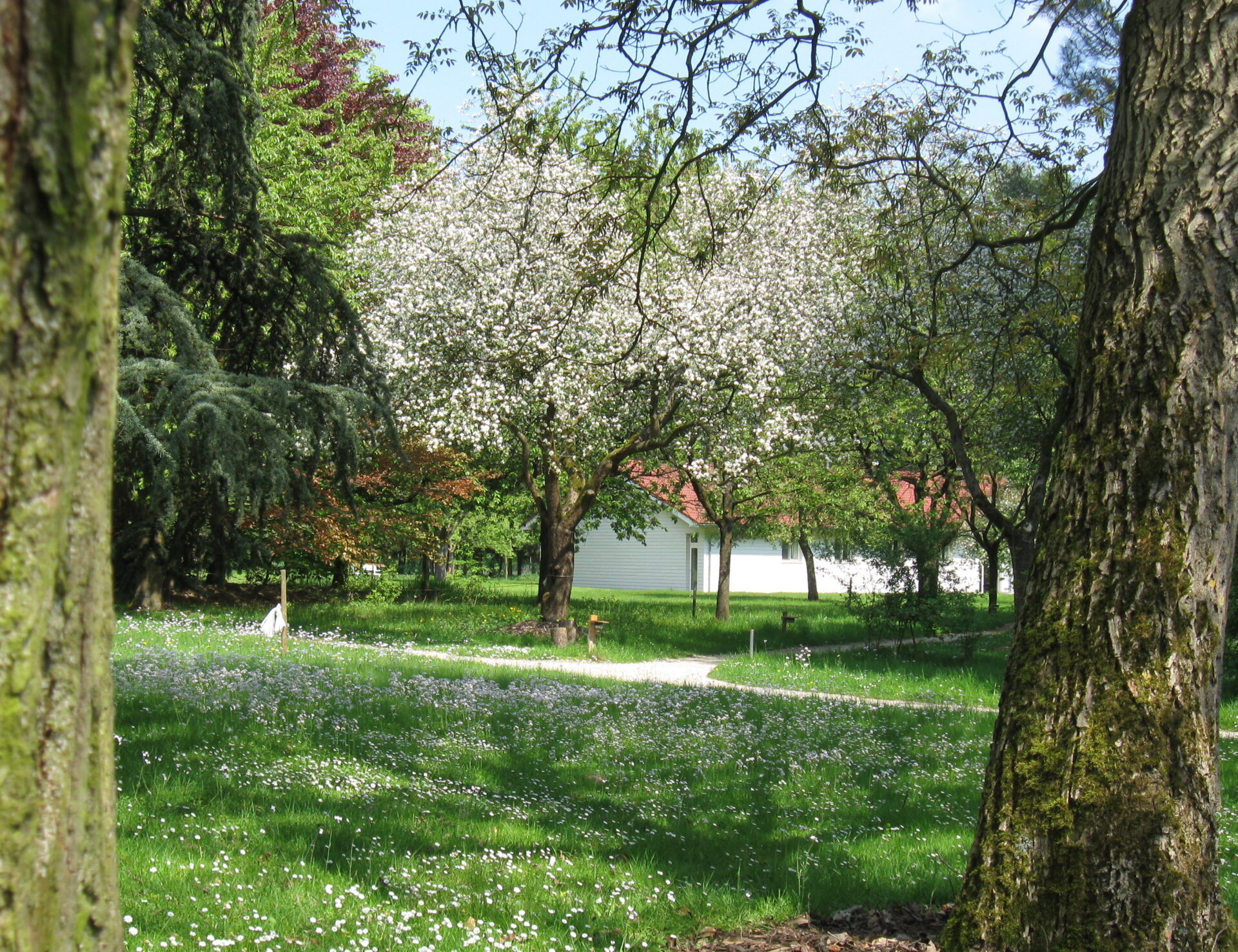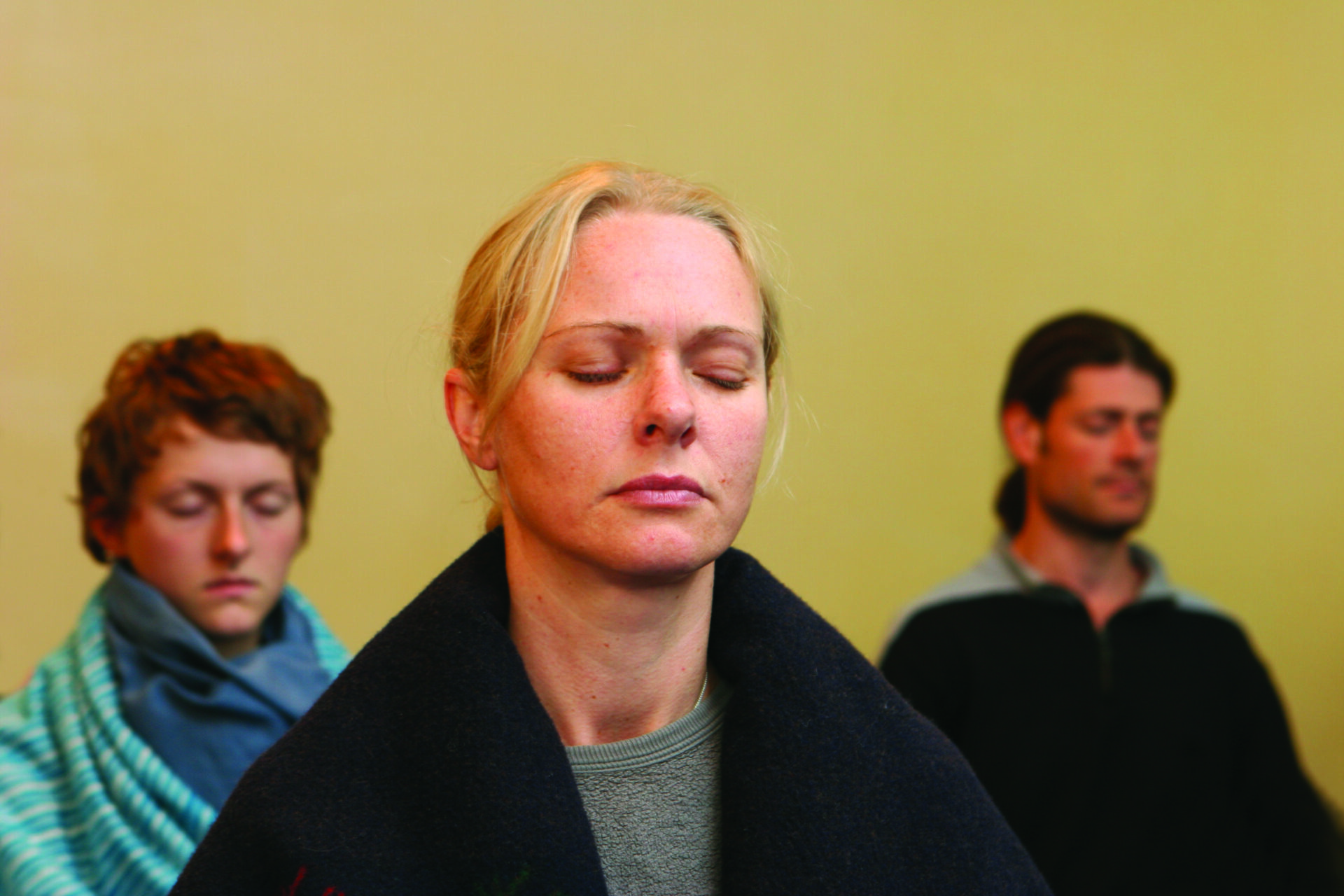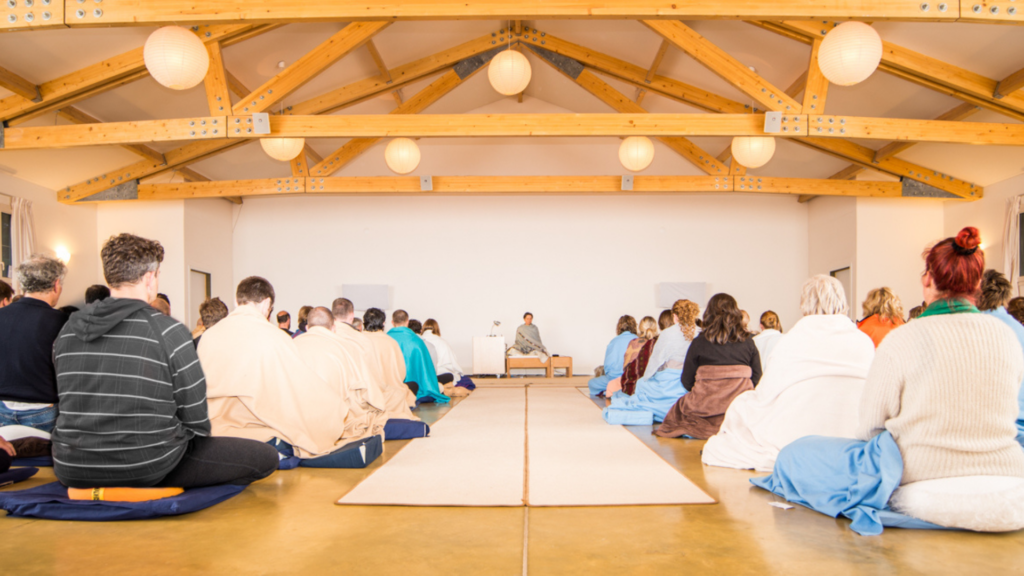The centuries-old meditative practice of Vipassana continues to appeal to people around the world and is widely regarded a cornerstone of spiritualism – a remedy to the freneticism of a world permeated by modern technology.
One of India’s oldest forms of meditation, those interested in the tradition no longer need travel to its homeland to learn the ways. In fact, Belgium has nurtured its own site devoted to the practice: in the Flemish town of Dilsen-Stokkem the Dhamma Pajjota Centre offers courses to individuals searching for a method of deep self-observation, namely through a ten-day silent retreat.
But whilst the volunteer-led courses fill up quickly, not all participants are able to make it through the intense experience. An admissions team might even turn down applicants they deem not to be at the right point in their life to participate in the retreat.
“It's intense and challenging, but also very rewarding,” Vipassana teacher Dirk Taveirne told The Brussels Times.
Vipassana meditation
Meaning “To see things as they really are,” Vipassana is an intense practice of self-observation meant to liberate the individual from suffering and lead him or her towards the highest form of happiness: enlightenment. It requires disciplined attention to the connection between mind and body in order to recondition one’s thoughts and detach oneself from negative feelings.

Dhamma Pajjota Centre grounds in the spring. Credit: Dhamma Pajjota Centre
According to the teachings, allowing thoughts and emotions to come to the surface of the mind (in the form of bodily sensations such as pain, tingling, warmth, sweating, accelerated heartbeat, etc.) enables people to free themselves from mental stress and conditioning at a much deeper level and live a more positive and peaceful life.
“Peace can only be achieved if there is peace within the individual. Otherwise, we just point at the cause of the anger and get even more angry. The only solution is to work at the individual level,” Dirk said. He and his wife, also a Vipassana teacher, have incorporated meditation into their daily lives: they meditate for an hour twice a day, every morning and evening.
This ancient and non-sectarian meditation technique is said to have been handed down from the historical Buddha himself through an unbroken chain all the way to present-day teachers.
“Buddha did not want to start a religion,” Dirk explained. “He wanted to spread a technique for people to liberate themselves from deep suffering and harmful attachments.”
The meditation technique
Dirk says that Vipassana meditation starts with feeling the body’s sensations with the mind, and intentionally trying not to react to them. Over time (and with the help of a trained teacher), students learn to detach themselves both mentally and physically from negative thoughts and emotions, akin to a sort of “purification”.
Ideally, this happens through three consecutive steps that take days to master: calming the mind by observing the breath and becoming attuned to the physical “ever-changing flow of breath”; understanding the changing nature of bodily sensations and learning not to react to them; and lastly, sharing the gained benefits one has acquired during the retreat with others.

Vipassana meditation students. Credit: Dhamma Pajjota Centre
“It's a kind of experience that for most of us is very unknown,” Dirk explained. “You get to know yourself at a much deeper level. You clean up the deep-rooted negative conditioning of the mind. Then you go back to your life and family, but you realise that deep inside yourself, you now have more stability and wisdom.”
According to the centre’s website: “Through direct experience the nature of how one grows or regresses, how one produces suffering or frees oneself from suffering is understood. Life becomes characterized by increased awareness, non-delusion, self-control and peace.”
The retreat experience
Participants are asked to follow a strict code of discipline. The five main precepts are abstinence from killing, stealing, sexual activities, lying and taking intoxicants. Along the same lines, the meals served are vegetarian, men and women are accommodated separately and smoking and drinking are prohibited on the premises of the meditation centre.
The general idea is to minimize distractions that, according to Dirk, “keep us on the surface of the mind”. That also means that participants cannot use smartphones, are not permitted to journal or speak to each other during the first 9 days of the 10-day course. These rules are meant to keep participants in the moment and in tune with their body and mind.
The code of discipline puts students in the best position to learn the technique and realise its benefits. Dirk stressed, however, that Vipassana is not a therapy for serious mental disorders.
Related News
- Buddhism is one step closer to official recognition in Belgium
- Belgian stress-reducing device ready to take American market by storm
- Mindfulness can be as effective as medication, study shows
Dhamma Pajjota Centre
The Dhamma Pajjota Centre is situated in a rural, 11-acre site in Belgian Limburg, close to the border with the Netherlands and Germany. The centre has a specially designed meditation hall in which all students meditate together, and can accommodate 110 people.
Courses are held year-round and are taught in two languages (English/Dutch, English/French or English/German). Each year the centre hosts more than 2000 people from around the world. “There are often waiting lists on courses, especially for newcomers,” says Dirk.
The centre is run by a non-profit entity called Vipassana vzw and a host of volunteers. It is a member of the International Vipassana Organization, which includes about 200 similar centres around the world that follow the same meditation tradition.
The courses are free and the centre depends on voluntary donations. Registration for courses open four months before the retreat dates.

